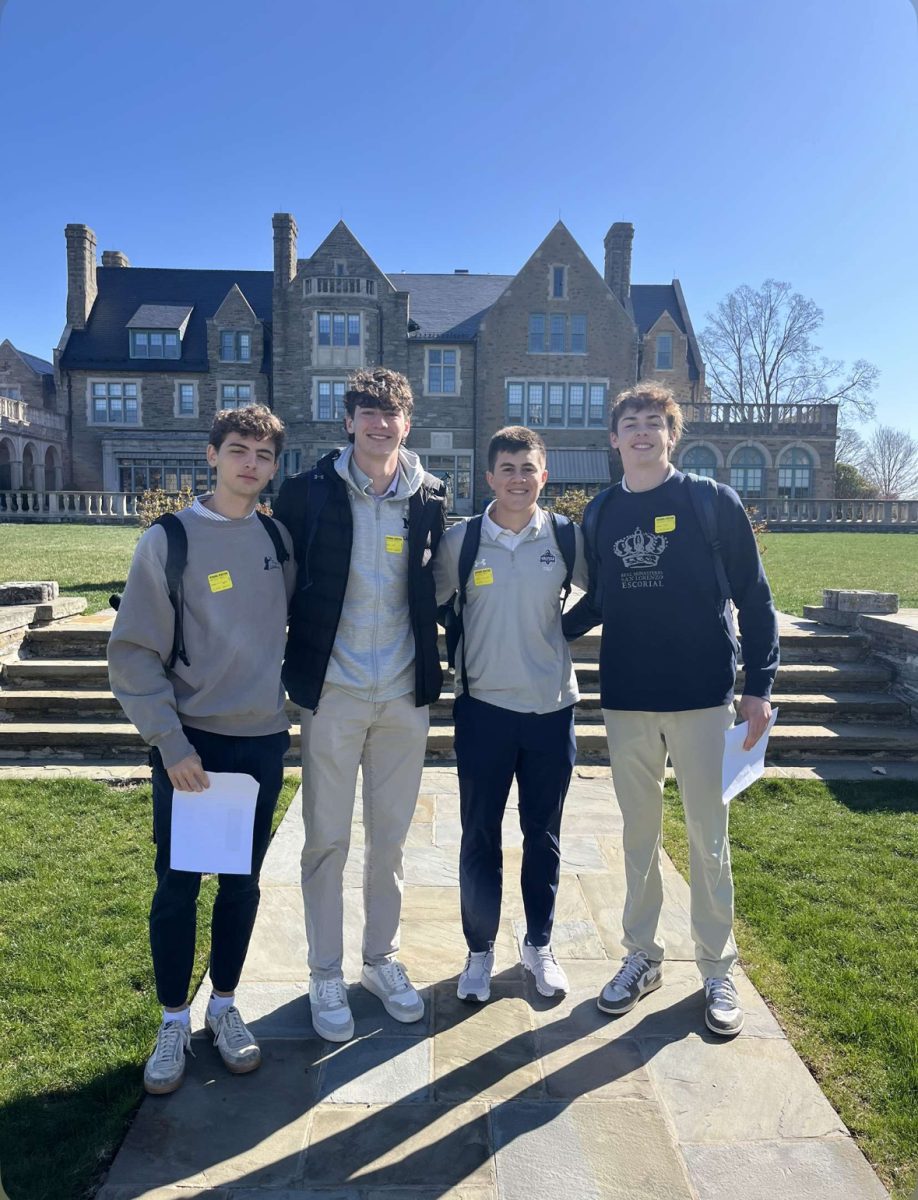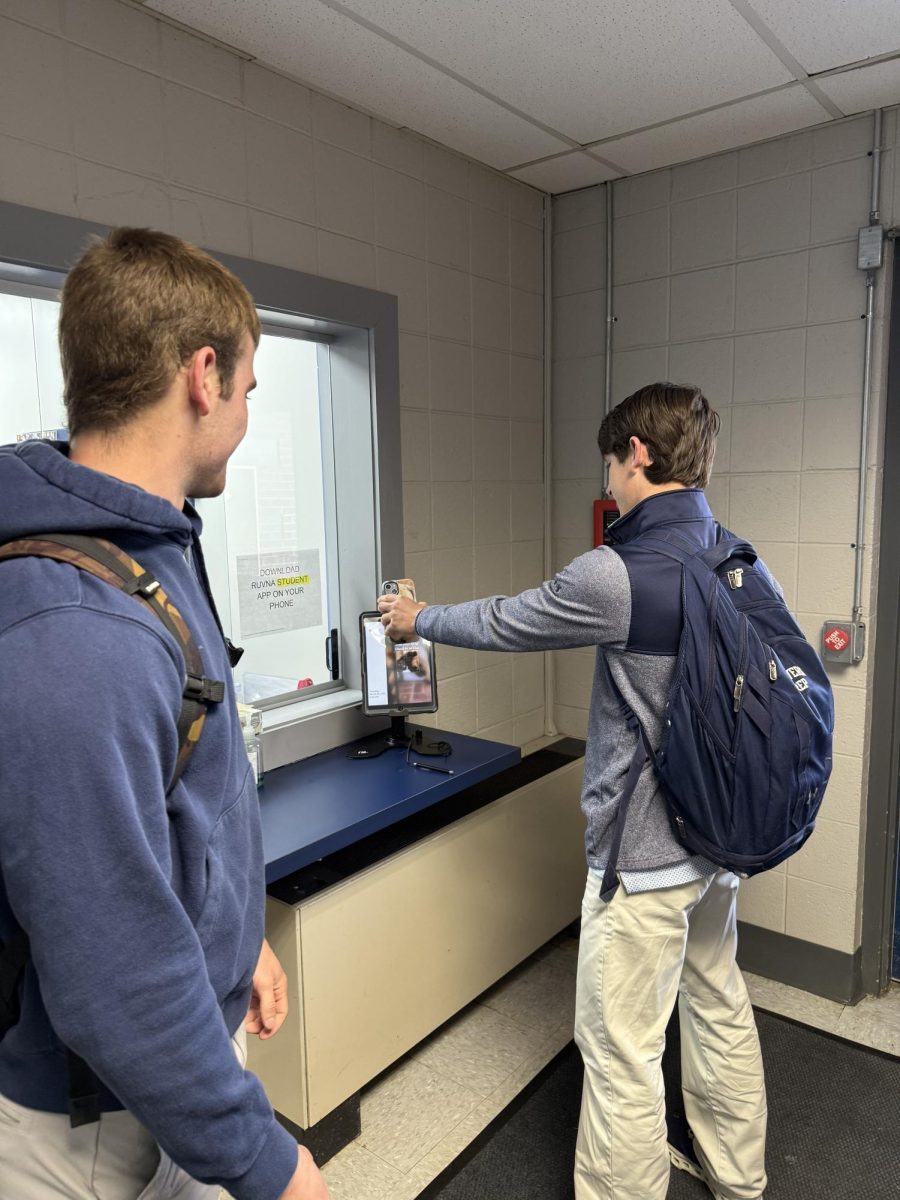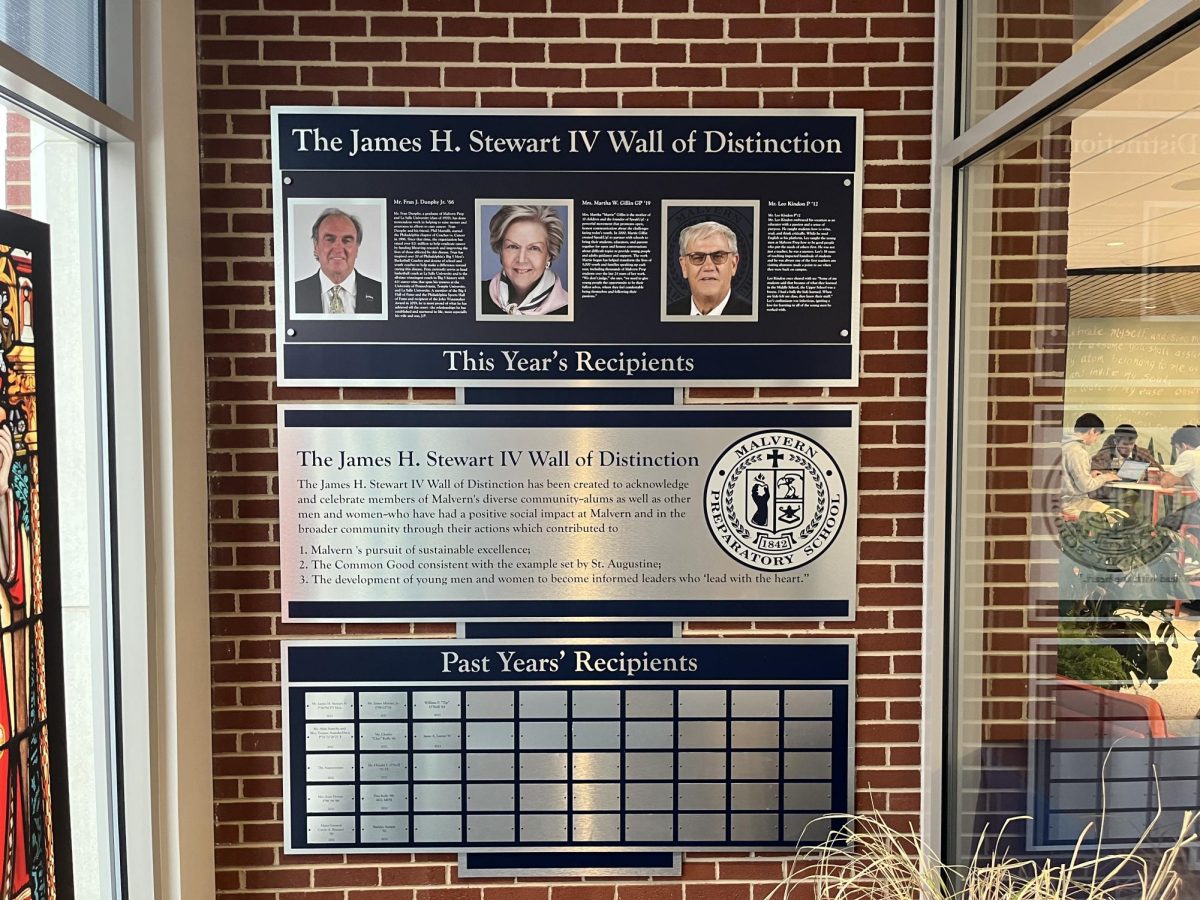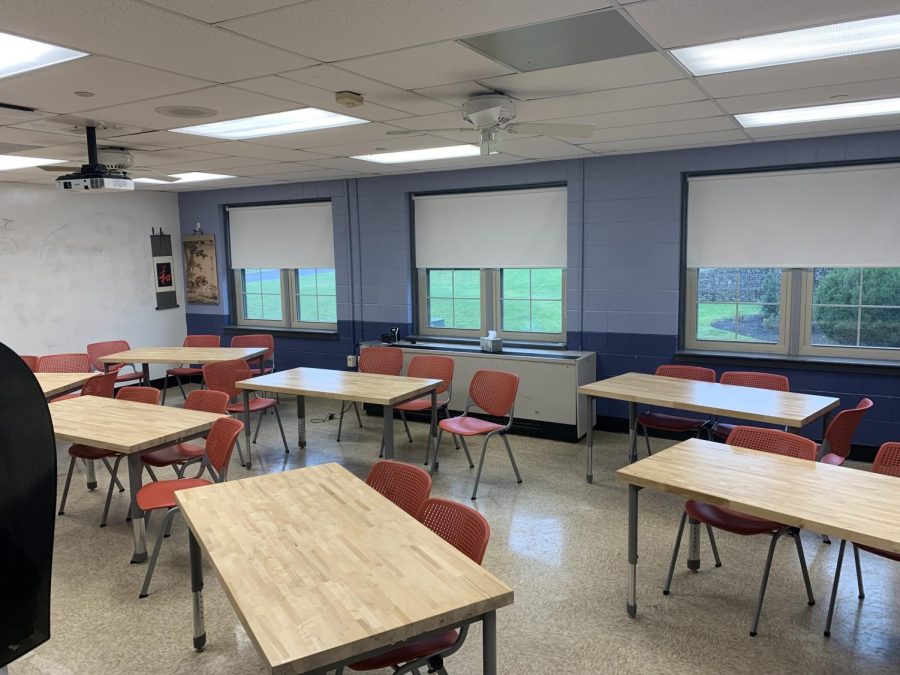It’s that time of year again. It’s the time of year for students to select their courses for next year. For seniors, it’s a sentimental time, for they know that their time at Malvern is soon ending. For freshman and sophomores, their courses are virtually laid out for them, with some choices in placement between academic and honors courses. For juniors, however, it’s a whole other story. It’s time for them to put together the final piece of the transcript that will seen by the colleges of their choice.
As juniors, we constantly hear from our counselors and college tours that the first thing college admission offices look at is our strength of schedule. They want to see if we challenged ourselves and made the most of our potential. Right now, many students are talking about their rigorous course schedules they selected for their senior year, with some taking four, five, or even sometimes six Advanced Placement courses. Juniors infected with an early-onset of “senioritis” might shake their heads and call them crazy. College counselors try to warn them of the laborious workload they have set for themselves. Yet many Friars still commit to the multiple-AP schedule, as they feel this is what colleges want to see. But are these AP courses really worth all of our struggles that we will face?
I wanted to hear a college counselor’s perspective on this matter, so I sat down to talk with Mr. Rich Roper. Mr. Roper doesn’t teach an AP (although students suffering in his class right now might beg to differ), but he does work with juniors in preparing for the college process and in scheduling their course load for senior year. He noted, “There is no doubt that the rigor of a student’s curriculum and the difficulty of the courses throughout his high school career is an important piece in what colleges use to assess the readiness of a student preparing for college.” He finds AP courses to be sometimes irritating and constraining in some cases, but he continued, “From the standpoint overall now of pushing a student to perform at his best, to organize at a high level, to communicate in that particular discipline at a high level, I think the AP classes can be beneficial.”
Mr. Paul Simpson, the Director of Counseling provided a different insight in the world of AP classes and the college process. He knows from experience that students feel like they must take all of these AP classes, but he offered some advice. He said, “If a student came to me wanting to take five AP classes, you want to find the balance and you want to make sure the student has an interest beyond just wanting to take the class to have the AP on their transcript.” He went on to talk about how if you had no interest in the sciences, there really is no need to take the AP Biology course. He believes that when we schedule our classes as seniors, it’s important for us to take something we are interested in, not just something that we want to improve our college application.
Many students take these courses to bolster their resumes. Some students justify it by saying that they want the college credit that they can get by achieving a great score. Yet some schools such as Dartmouth and Boston College are no longer accepting AP credits, and many schools are raising their required scores and are becoming more restrictive on which classes they will accept for credit. The trend seems to be headed towards less consistency of college credit for AP classes, with much more scrutiny on the individual transcripts and scores.
But is the goal of a student enrolling in multiple AP classes to lessen their college workload or to learn deeply in their final year at Malvern?
As a junior, I am taking AP US Government with Mrs. Lappas. Last year at this time, I didn’t sign up for this class because I felt like I had to, I took it because I thought it would be an interesting course. It has proven to be so, as Mrs. Lappas is an engaging and challenging teacher. One of the main problems with AP classes, however, is that at the beginning of each year, the teachers are given a schedule which they need to follow in order for their students to achieve a high score on the AP exam in May. That seemed fine to me at first, except this year was an election year. We wanted to watch Romney and Obama debate, and we wanted to see Joe Biden’s latest gaffe. What could be more relevant in US Government than analyzing history being made? Yet we only had a finite amount of time to talk about it, because the AP schedule said that we were behind.
According to Mrs. Harriet Lappas, “The biggest downside to teaching an AP class is that the curriculum is dictated by a foreign body. I think that every school is different and that every teacher works at their own pace, and they would like to highlight different units in the curriculum. Students take the class to take the exam and to do successful on it, but that really limits the time for true thinking, reading, and writing, and fails to allow time for going into depth on something that the students find interesting as opposed to just a survey course.” Is it more important to be able to analyze the elections and politics with a solid foundation in American government, or to memorize facts for the AP exam? Are these classes inhibiting rather than helping us?
Mr. John Bohannon, Chair of the English Department, teaches AP English and offers another perspective. “They (the students) learn to read vast amounts of material in a shortened period of time, but do I hold them to a different standard than my academic classes? No, they all have to do the work and that’s the primary thing.” Although Mr. Bohannon does not feel the same time constraints as Mrs. Lappas, he noted another downside to teaching the AP class. “A lot of guys take it not because they want a college level course, but because they want that AP designation on their transcript when it goes out in early October to colleges. Many students are accepted in early November and December, and it is unfortunate but a lot of them believe that the AP did what they wanted and got them into a school, so by the end when they take the test some are not very interested in the test.”
Teachers struggle with this when students take their classes simply to polish their transcripts and not because they are truly interested in and Advanced Placement course. Does this mean that Malvern should follow in the recent paths of The Haverford School and Westtown School and eliminate AP classes all together?
The best way to answer that question is to go to the top, so I spoke with Mr. Talbot. He said, “It’s sort of a Catch-22. You’re damned if you do by taking the class, because then you have to suffer through covering all of this material and you’ll probably forget it all after the test, and you’re damned if you don’t because if you don’t take the AP classes, you’re basically saying to colleges ‘Well I didn’t take the most rigorous courses as possible.’ It’s a real dilemma.”
Knowing that he’s a huge proponent of 21st century education, I was curious whether he thought that APs are on their way out the door. Mr. Talbot spoke with a few college admissions officers on the subject, and asked if they could foresee Malvern dropping its AP program altogether and still produce a student that is highly competitive for a seat at their school. The overwhelming response was absolutely, it can be done, if the courses that replace the AP curriculum were equal or even more challenging.
Given Malvern’s reputation for academic excellence, and strong relationship with many of the top colleges in the country, the implications of such a significant change must be studied very carefully. Some of teachers and counselors with whom I spoke suggested that certain AP curriculums such as Calculus, English, and Science courses might be continued while others would be better suited with a more flexible curriculum. So will Malvern eliminate AP courses altogether, or reform certain courses to better suit a student’s learning? The fact remains that we juniors know that colleges want to see that we challenged ourselves throughout our high school career, so many of us remain content with their course selections. One thing is clear though, if Malvern is truly moving to 21st century education, then the AP Program is in dire need of reform.



















